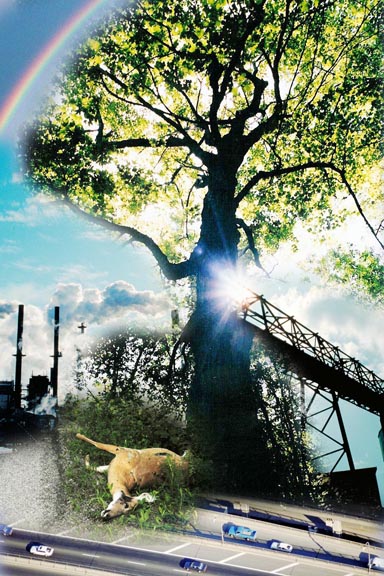Earth Day: Reverence for life by Phil Norton A former rural “neighbour” of ours in Quebec, a McGill University professor, Peter Brown, has a new book “Right Relationship: Building a Whole Earth Economy.” In it he ponders the weakness of religious interpretations that do not consider the importance of life other than man. He cites the physician Albert Schweitzer who “emphasized duties to living things that are not human,” and who spoke of a reverence for all life. He combines this philosophy with that of wildlife manager Aldo Leopold who spoke of our responsibility to preserve entire biotic communities as interdependent systems. Dr. Peter Brown writes: “Both these writers and thinkers realized that what is needed in the world they lived in, the Western world, is a deep, widely shared experience of life’s unity and great beauty and of humanity’s critical role in cherishing, protecting, and enhancing the integrity, resilience, and beauty of all life and life communities.” In 1948, Aldo Leopold penned the introduction to his landmark conservation book, “A Sand County Almanac,” sharing his observations about how mankind mistreats the natural world. Over 60 years later his words remain relevant. He saw conservationists as a minority in society and he expressed contempt for all of society’s “material blessings.” He also viewed the oft-misinterpreted religious philosophy of Genesis 1:28 (dominion over the earth) as opposing the natural balance that sustains life. In 1979, I met one of his daughters, Nina, in Wisconsin at their rustic family farm. I now correspond by email with his daughter Estella, a widely-recognized paleontologist. Their farm is still intact plus a modern, "green" environmental education center has been built nearby. Aldo Leopold wrote: “There are some who can live without wild things, and some who cannot. These essays are the delights and dilemmas of one who cannot. Like winds and sunsets, wild things were taken for granted until progress began to do away with them. . . “Now we face the question whether a still higher 'standard of living’ is worth its cost in things natural, wild, and free. For us of the minority, the opportunity to see geese is more important than television, and the chance to find a pasque-flower is a right as inalienable as free speech. . . “We of the minority see a law of diminishing returns in progress; our opponents do not. . . We abuse the land because we regard it as a commodity belonging to us. When we see land as a community to which we belong, we may begin to use it with love and respect.” |
 |
Rachel Carson was a biologist who grew up 20 miles from my hometown near Pittsburgh, Pennsylvania. In 1962, she published her historic book about pesticides, “Silent Spring,” that led to the banning of DDT. She dedicated it to Albert Schweitzer who said, “Man has lost the capacity to foresee and to forestall. He will end by destroying the earth.” But she also expressed a more hopeful message and her indebtedness to people she did not even know: “These are the people who first spoke out against the reckless and irresponsible poisoning of the world that man shares with all other creatures, and who are even now fighting the thousands of small battles that in the end will bring victory for sanity and common sense in our accommodation to the world that surrounds us.” I have met and continue to meet many such people who devote personal time and resources to being a voice for the earth. Sometimes their efforts pay off as they rally their forces to victory. But, too often, the defenders of the environment are overpowered by greater political and corporate forces. However, even in defeat, their acts of selfless commitment for a better world, not for financial gain or ego or personal power, inspires others to respect the earth. |
| Return to homepage |